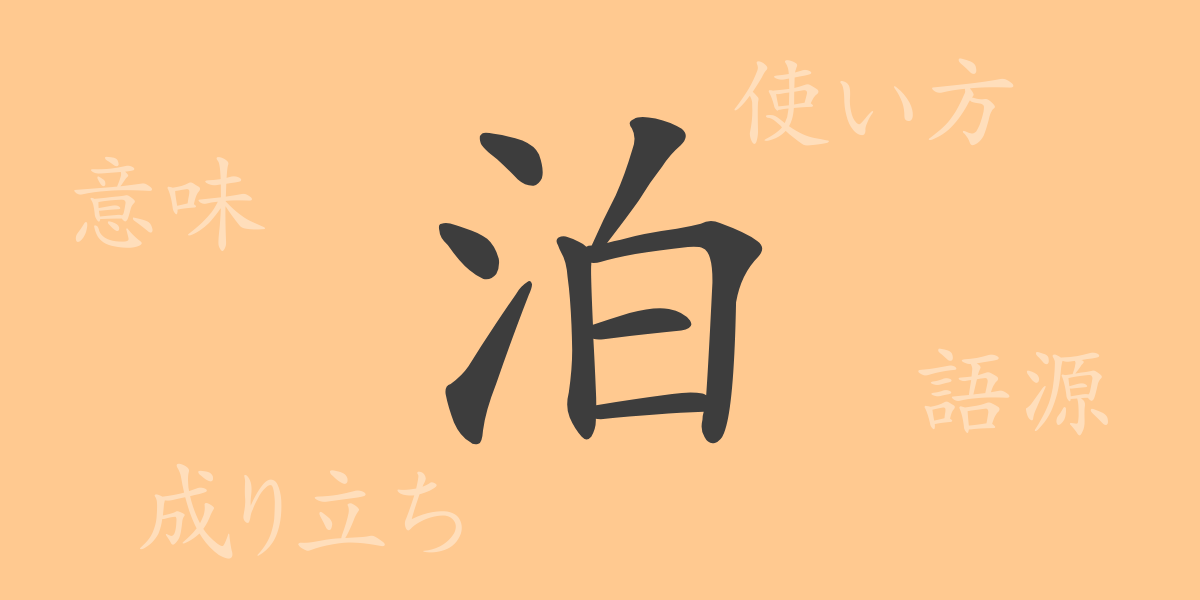In Japanese, many kanji characters carry rich meanings within a single character. Among them, *泊* (とまる, tomaru) is a kanji that is closely connected to our daily lives. This article delves into the origins, meanings, and uses of “泊”, as well as its readings, stroke count, radical, and the idioms and phrases that include it, uncovering its unique charm.
The Origin of 泊 (とまる, tomaru)
The kanji *泊* originated from pictographs that depicted a boat stopping by the water’s edge. Initially, it meant to stop at the water’s edge, and later its meaning expanded to include staying overnight or stopping for a while. The shape of the character illustrates the image of a boat coming to rest beside the water.
The Meaning and Usage of 泊 (とまる, tomaru)
The primary meanings of *泊* are “to stop” and “to stay overnight.” In Japanese, it is used to refer to staying at accommodation facilities or for a boat coming to a halt in a harbor. It can also be used metaphorically to indicate staying for a prolonged period in a particular place.
Readings, Stroke Count, and Radical of 泊 (とまる, tomaru)
Let’s take a closer look at the readings, stroke count, and radical of the kanji *泊*.
- Readings: The *on’yomi* (音読み) or Chinese reading is “ハク” (haku), and the *kun’yomi* (訓読み) or native Japanese readings are “とまる” (tomaru) and “とめる” (tomeru).
- Stroke count: 泊 consists of 8 strokes.
- Radical: The radical is 水 (みず, mizu), which means “water,” indicating its connection to water-related actions or objects.
Idioms, Phrases, and Proverbs Using 泊 (とまる, tomaru)
There are numerous idioms, phrases, and proverbs in Japanese that include the character *泊*. For example, *一泊二日* (いっぱくふつか, ippaku futsuka) refers to a short trip that involves staying overnight for two days. *泊り込む* (とまりこむ, tomari komu) means to stay overnight, often implying working through the night. Additionally, *泊める* (とめる, tomeru) means to let someone stay overnight, such as hosting someone at home.
Conclusion on 泊 (とまる, tomaru)
The kanji *泊* encompasses a wide range of images, from the act of stopping or staying overnight to the rest and routines of travel embedded within it. Frequently used in daily life, this kanji is deeply intertwined with Japanese culture and has been cherished in our language, reflecting the way of life of the Japanese people.

























